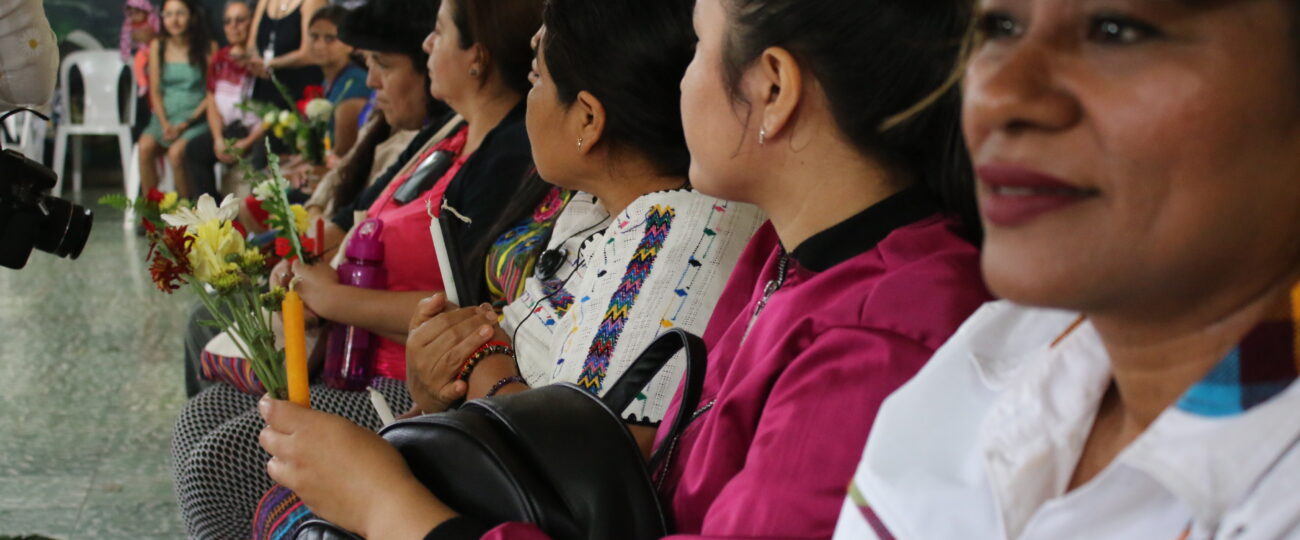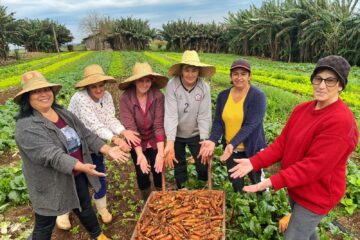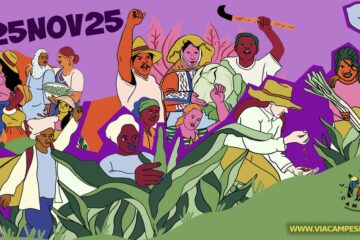When we speak about political subjects, we must speak about power relations. When we talk about building a political subject, we are talking about a process in which we become political subjects within the movement to be able to change this system that is based on unjust power relations.
To build a political subject, we must go from the individual to the collective, building agreements together. This does not just mean expressing our opposition to the capitalist system—it is not enough to say “damn patriarchy” or “death to companies” without taking action. We must do something about it, collectively. In this process, we play the major role in our own history.
In this sense, looking back on our history and our memory as a feminist movement, from women and dissident people’s struggles, is a key element to keep our movements alive, without having to start from scratch every time.
Knowing our history, our memory, our legacy, and our predecessors is essential for building a political subject.
Organizing strategies is necessary to recognize the oppressive situations we experience and acknowledge that they are part of the same system. As feminists and members of grassroots movements, we have popular education as a tool. It helps us become aware and, more than that, go from an individual awareness to a collective awareness. Along this path, we have decided to be part of processes of change based on our own lived experiences, and by listening to and learning from the struggles of sisters and comrades—which can actually be very different.
Our Cuban sister Isabel Raubner mentions the ability to give reality new interpretation and meaning as a fundamental element to build a political subject, without believing everything big media outlets say or accepting the idea that people are poor because they want. We must no longer consider normal a system that has made us believe in its own norms. We must also develop a critical consciousness, recognizing oppression and recognizing who is responsible for it, its beneficiaries, and how it works.
Giving reality a new interpretation means building our own concepts and our own ways of explaining the world.
Feminist Reflection and Political Project
Building ourselves collectively as political subjects also means having a political project, an alternative for the world. It is also necessary to analyze and denounce all those things that we don’t like, but not just that. It is also necessary to build a vision for the reality that we want, a reality that allows us to live better, and have that present in our alternatives. While some of these alternatives are already underway, we have imagined others and plan to put them into action when our forces are enough. As our alternative project engages more people, it becomes more solid.
By building this feminist political subject, we build our own thought. Our documents and publications represent the knowledge we produce through dialogues and analyses, through hard work and accumulated knowledge from struggles and experiences, which become richer as we connect and share with other sisters and comrades’ work.
The ability to mobilize to share this project and put it into practice is fundamental. We might have an excellent analysis of contexts, an excellent project and horizon for our struggle, but, if we don’t take steps ahead and create forces, our aspirations will be nothing more than that.
Why Speak of a Plural Political Subject?
Because we acknowledge that diversity is wealth. There is diversity in struggles, there are differences, and oppressions are manifest in many different ways. However, these differences do no divide us, but rather empower us as a movement. We learn from other people’s experiences, with their forms of resistance and struggle, which contribute to a broader, stronger project.
When we talk about a feminist political subject, we acknowledge that we share an opposition to the patriarchal system, even though our individual stories are very different and the moment where we are with feminism is too. We don’t have the same starting point, and oppressions pervade us differently. Many of us possibly did not have claim to be feminists right when they started as political activists, and that may have happened through a collective process, which takes time.
We may identify with different feminist currents or experiences, but, as part of the building of this political subject, we can find ourselves within grassroots feminism, where we can generate convergence, unite forces, and come together in alliances. We can share our struggles while also acknowledging that we come from different places, with our different backgrounds, ages, political cultures, and life experiences. These differences do not divide us and can make us stronger as a movement.
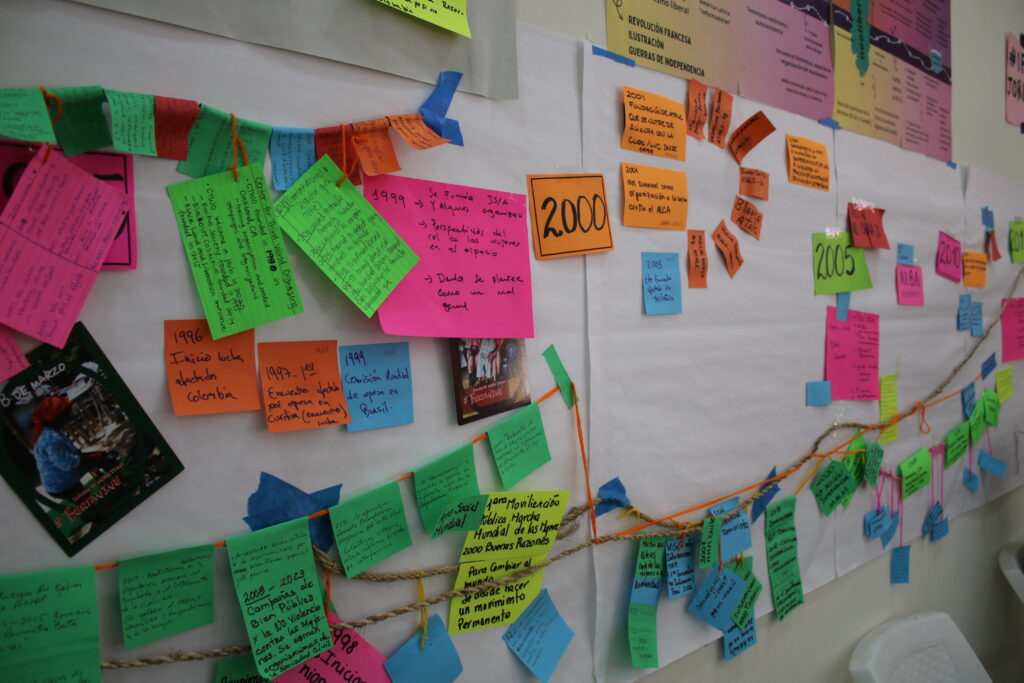
Grassroots Feminism
We say that this is a grassroots political subject because we believe that change must happen with the peoples. We cannot free ourselves by ourselves, and we do not pursue change only for a few. We want radical systemic change and an anti-systemic feminism that articulates its alternatives while recognizing that oppressions are interconnected. Moreover, we also have everyday, concrete, material practices in our territories—which are the peoples’ territories.
We try to understand how people see the world, how they struggle and organize, what their obstacles are, what strategies work best, and what alternatives they propose. But how can we keep our joint efforts focused on our emancipatory projects so that we are not co-opted by a system that aims to divide us, jeopardize our joint efforts, and take over our demands? How can we focus on a shared, jointly articulated, solid emancipatory project?
Why a plural, grassroots feminist political subject? Because our struggle is against the system. We can’t break free just from patriarchy, just from capitalism, just from colonialism, just from racism.
How do we see the world? How do we struggle? What are the obstacles? What alternatives are we proposing? How can we articulate joint efforts? Of course we can organize together based on everything we say ‘no’ to, but how can we do it based on all the things we want to say ‘yes’ to? The emancipatory project that we want is what will make us organize together with all our diversity. We need feminist strength to change the world, to face this multi-headed system that tries to co-opt our discourse and our projects, that tries to jeopardize our joint efforts and promote a feminism that is nothing but a facade.
We need to struggle together, collectively, even if it requires a lot of time and effort, because, like the Zapatistas say in my homeland, “we will go far.” By learning to organize joint efforts, sustain our alliances, and keep our struggles united, we become stronger and have better conditions to face crises and strengthen our alternatives for the sustainability of life.
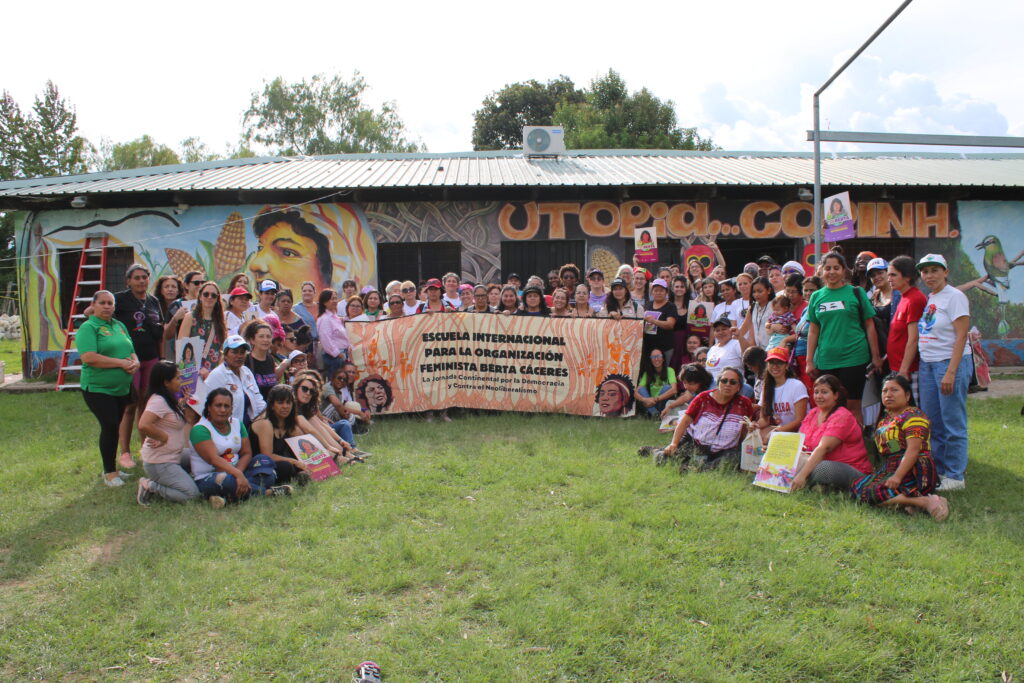

Carmen Díaz is a World March of Women militant from Mexico, a teacher, and researcher. This is an edited version of her talk about building a political subject introduced during the International Feminist Organizing School (IFOS) that took place in Honduras in August 2023.

